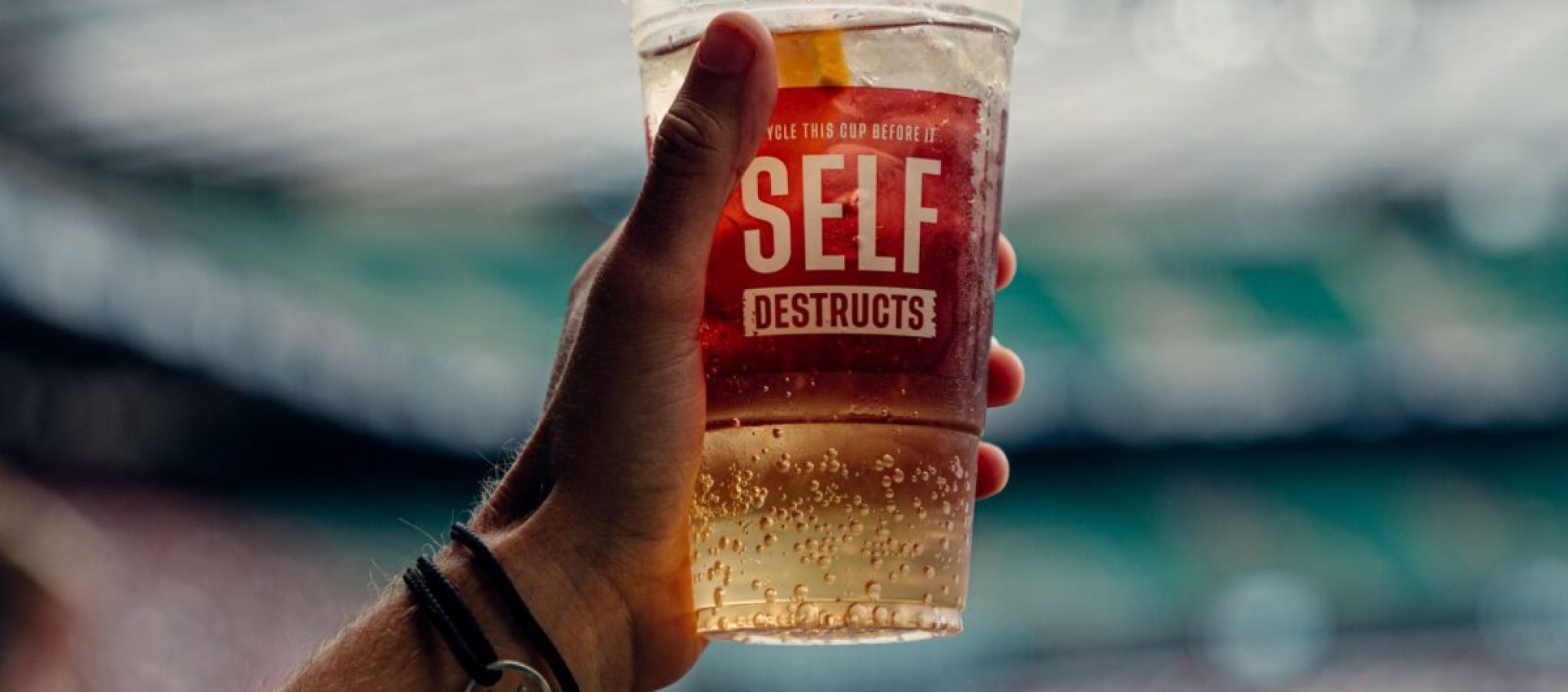Twickenham Stadium links with Lyfecyle to introduce ‘Self-Destructing’ Plastic Cups
Twickenham has announced the use of self-destructing plastic cups at the stadium thanks to a partnership with Lyfecycle, a technology created by British innovators Polymateria, which offers a one-of-a-kind solution to prevent ocean plastic pollution through the creation of degrading cups.
While made for recycling, if the cup escapes into nature, it will self-destruct on land within two years leaving no microplastics or toxins behind. What is left is only an earth-friendly wax that becomes a part of the natural cycle of life. The new cups not only are designed to work in harmony with nature but can be used by delegates and spectators at the stadium.
Nils Braude, Managing Director of Twickenham Experience said, “We’re constantly looking at new innovations and ideas that help us in our responsibility to build a more sustainable future for the next generation. Working with Lyfecycle enables all our guests to feel good about their visit to Twickenham, knowing that with every cup, they’re taking an actionable step towards solving one of the biggest environmental problems of our time.”
“Polymateria’s mission is to stop plastic on land before it reaches the oceans. Through visionary partners like Twickenham, our Lyfecycle time-controlled self-destructing cups show how recycling and biodegradation can work together, something previously not thought possible. To prove this, we’ll recycle cups used at Twickenham throughout the year and turn them into legacy items like benches and unique jewellery. On the current path, 450 million more tonnes of plastic will reach our oceans by 2040 so we must act now.” says Niall Dunne, CEO of Polymateria.
For more information on the Lyfecycle cup you can visit twickenhamstadium.com/tackling-plastic
About Lyfecycle:
Lyfecycle is a new solution from British Innovators Polymateria to tackle the global plastic pandemic. At a global level, a staggering 32% of all plastic waste escapes collection systems and ends up in nature. Plastic polluted onto the land makes its way into the oceans over time, contributing to the ocean plastic pollution crisis. In fact, 80% of plastic in our oceans originated on the land.
The Lyfecycle cups being showcased at Twickenham provide an antidote to plastic pollution by self-destructing on land within two years leaving no microplastics or toxins behind. What is left is only an earth-friendly wax that becomes a part of the natural cycle of life.
Lyfecycle packaging solutions give individuals a more easily achievable way to take small actions toward responsible disposal that will have an immediate and global positive impact on the environment. Through collaborative partnerships, awareness building, and scientific innovation, Lyfecycle’s goal is to ignite action and cause a ripple effect that will solve ocean pollution and leave the planet in a better place for generations to come.
About Twickenham:
Twickenham is the home of England Rugby, with a capacity of over 82,000 making it the largest rugby union stadium in the world, and the fourth largest stadium in Europe. Built over 115 years ago in the early 20th century, Twickenham is one of the most iconic sporting venues in the world.
Twickenham Experience Limited (TEL) is a joint venture between the RFU and Compass Group, the world’s largest food services provider. TEL sells and manages all conferences and events that take place within Twickenham Stadium as well as all match day hospitality and public food and beverage services and the World Rugby Museum and Twickenham Stadium Tours. See more about the facilities at Twickenham Stadium.
Find out more about sustainability initiatives at UK stadium venues.
